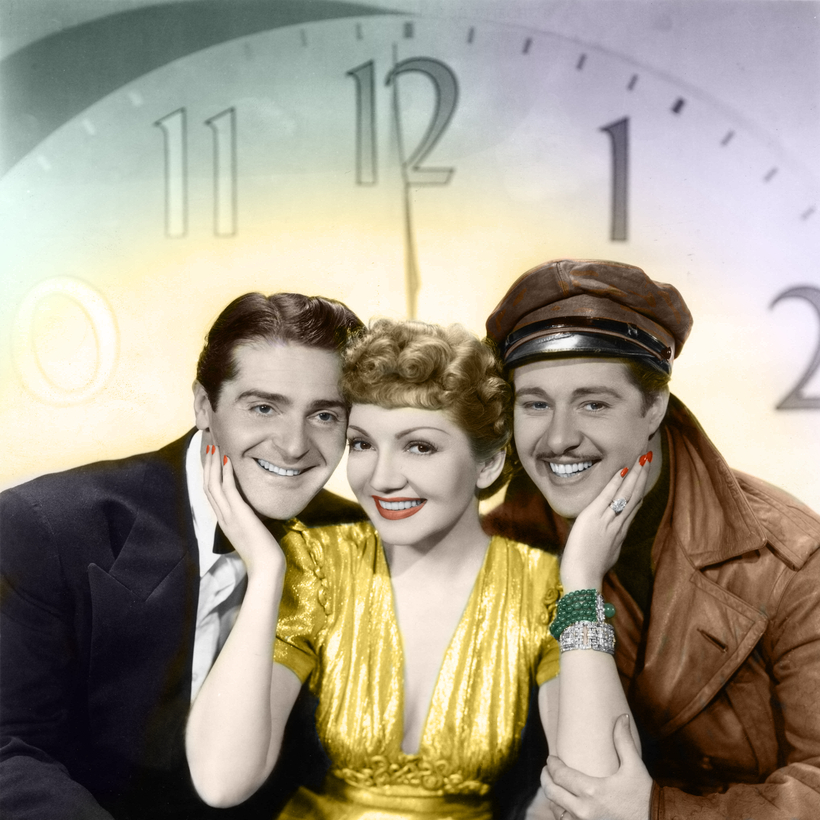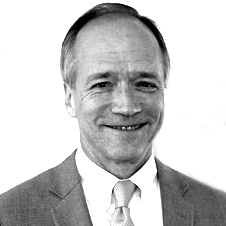The short list of great sophisticated comedies has not grown longer over the years—an intelligent light comedy is one of the hardest of all things to create. The broad and the dumb have always carried the day, not only now but in the golden age of Hollywood.
Nineteen thirty-nine is justly celebrated as the year in movie history to have produced the most memorable movies of any other: The Wizard of Oz; Gone with the Wind; Mr. Smith Goes to Washington; The Rules of the Game; Stagecoach; Le Jour Se Leve; Wuthering Heights; Goodbye, Mr. Chips; The Story of the Last Chrysanthemum; and Dark Victory, among others on a long and still staggering list. Yet within the vault of that year’s vivid work, there are only two genuinely wonderful comedies: Ninotchka and Midnight, both written by Charles Brackett and Billy Wilder. Many classic film–lovers know Ninotchka, but I’m amazed at how many people who know great movies don’t know Midnight.
If it is unknown to you, you will enhance your happiness levels by knowing it. It is being shown this month on the indispensable Criterion Channel as part of a series on its director, also not as well known as he should be: the stylish and gifted Mitchell Leisen.

Midnight is a typical 30s story—like so much that was made in those hungry and desperate years, it is about money, and how much, or how little, of it you need to fall in love. Claudette Colbert plays Eve Peabody, freshly arrived in Paris from a wipeout at the gambling tables in Monte Carlo. Having pawned everything she owned for a ticket to Paris, she steps off the train wearing all she has left: a gold dress that swirls around her petite figure like soft ice cream spiraling up out of a cone. She quickly falls in with a taxi driver, Don Ameche, who agrees to take her to nightclubs to audition. If she gets a job, she’ll pay him double the meter. If she doesn’t, he gets nothing. Several auditions later, she faces an unhelpful reality: “I guess mine,” she says, “is strictly a bathtub voice.” But after hours of being together, Ameche has fallen for her.
He offers her the key to his apartment, but in the gallant 30s way: she can sleep there while he drives the night shift. She knows better than to take the key. She has also fallen for him and is afraid she’ll never give it back. With no money of her own, she doesn’t want a relationship with a driver but with a man who has a driver. Her thinking is more romantic than mercenary: always short of money, her parents could never stop fighting long enough to love each other. She likes Don Ameche too much to ever have to stop loving him, so when he pulls his cab into a gas station to re-fill his tank, Colbert slips away.
There are only two genuinely wonderful comedies from 1939: Ninotchka and Midnight, both written by Charles Brackett and Billy Wilder.
She runs down the street—it is raining—and a doorman sees her. He assumes she is joining the throng of society people entering the building where he works, so he comes over with an umbrella and leads her toward the party, among whose wealthy guests is Georges Flammarion, played by John Barrymore. This is the first of several magical turns of luck she experiences. I shall not describe what ensues.

Unlike so many comedies that rely on sight gags or jokes, Midnight derives much of its charm from the twists in its deftly plotted story. It’s like a meal where every few minutes a waiter arrives with a silver-domed plate, under which is always something new and delectable. But it ruins nothing to tell you that among the film’s sterling supportive cast are the gossip columnist Hedda Hopper, as hostess of the party into which Colbert finds herself so serendipitously ushered; Monty Woolley, enlivening and amusing as an irascible French judge; and, best of all, Mary Astor, as Barrymore’s younger, wandering wife. It is almost redundant to say “best of all” when speaking of Mary Astor because she is always just that. I cannot recall a single performance of hers that didn’t improve whatever picture she was in.
The film was shot by Charles Lang, and the only criticism one can make of his work is that the actual Paris, unfailingly beautiful in sunshine, fog, or snarling storm, becomes the second-most-beautiful Paris in the world, after the one Lang lit and shot on the Paramount back lot.
Billy Wilder revered Ernst Lubitsch, who directed Ninotchka, but loathed Leisen. For years, he claimed to have become a director just so his scripts wouldn’t get loused up by the likes of Mitchell Leisen. Yet Leisen serves the material every bit as well as Lubitsch served Ninotchka, and, in fact, with more delicacy than Wilder often served his own scripts later when he began directing.
In his invaluable book of film essays Have You Seen … ?, David Thomson says that Leisen found the original script of Midnight a touch too cynical. I suspect he asked for some softening of Colbert’s character. Whoever the author of the idea, it does the trick: Eve Peabody could have easily been an unsympathetic gold digger, yet her explanation of her parents’ struggles, not to mention Colbert’s warmth and irresistible air of drollness, keeps you on her side. In her long career, Colbert was never more winning—not even in It Happened One Night, for which she won the Oscar and which has not aged nearly as well as Midnight.

The film is not perfect. While it has a rich supporting cast, Barrymore’s acting style was out of date even then—he does that man-of-the-theater trick of rolling his r’s—though his character is so touching and likable it doesn’t matter. Of more concern is Ameche. He hadn’t figured out that the trick in romantic comedies, where the central players are often spatting, is to squabble in a way that feels like a tennis match, not a rock fight. (Colbert understood this—she is the Steffi Graf of verbal tennis.)
Billy Wilder revered Ernst Lubitsch, who directed Ninotchka, but loathed Leisen.
Luckily, the story is so fun you accept, if not embrace, Ameche. It would be churlish to get hung up on him when throughout the film you are diverted by Brackett and Wilder’s toothsome dialogue. Early on, when Colbert goes to buy a hat for a weekend in the country, the shop’s owner says, “I’ll show you some amusing models,” to which Colbert replies, “Nothing too convulsing, please.”
It’s been a long, grim year—here is wit and romance in the sort of shimmering black and white that makes you never want color. Whether 1939 or 2021—it’s always time for Midnight.
Douglas McGrath is a filmmaker and playwright, and a columnist for AIR MAIL

